Locally Laid: A Business Saved by Storytelling
Lucie Amundsen’s journey to poultry success was not an easy one. The co-owner and marketing mind behind Locally Laid Egg Company dealt with the usual struggles of launching a sustainable farm — competing with bigger brands, a severely challenging profit margin and an audience that might not understand the importance of buying local.
Fortunately, Lucie’s true passion is in storytelling. Through a series of blogs, books, handbooks, and other creative projects, she managed to save a farm she said “should have failed.” Instead, the farm is now in such good standing that Lucie and her husband Jason have expanded into agrotourism as part of the farm’s tenth anniversary celebration.
In June the Amundsens opened their “AirB-n-Bawk,” which consists of a vacation treehouse for the “farm-curious traveler” and a solar bunkhouse where guests can “literary bed-down with the chickens just a pane of glass away.”
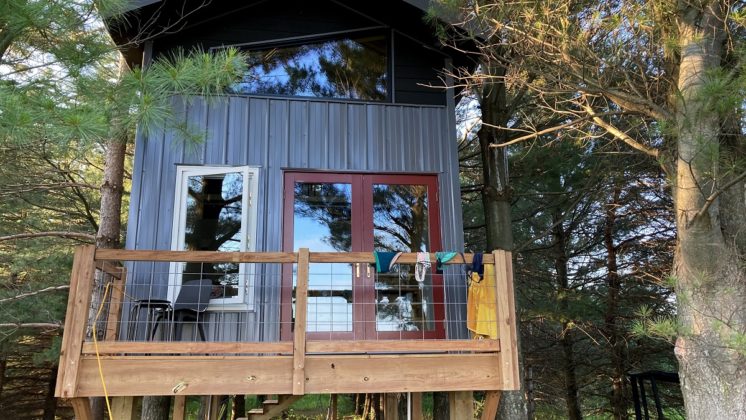
Guest farmers can stay in Locally Laid’s 10-by-20-foot treehouse, the Perch, adjacent to hundreds of chickens and a 14-acre berry farm.
Lucie now teaches other sustainable farmers how to find the same success through storytelling. She explained that people tend to organize their thoughts around stories and that they started rooting for Locally Laid like it was the “under-chicken” after she began sharing some of her stories from the farm. She laughed as she described the time she posted a picture of it being 110 degrees while she was out watering poultry and got comments saying “you’re living the dream!”
Lucie swears by storytelling, and claimed that of all her numerous creative writing projects, her book — Locally Laid: How We Built a Plucky, Industry-changing Egg Farm – from Scratch — had one of the biggest affects on the farm primarily because it led to so many opportunities to speak and share her story.
“When you speak to a group and tell your story, that’s a great way to do it,” Lucie explained, “and then you get a reputation, especially if you’re a fun speaker. I find self-effacing humor makes people really comfortable with you.” Lucie claimed that her use of humor in telling her story has been a great way to create brand evangelists.
Though she is now a comical advocate for supporting local farms, Lucie’s venture into life as a reluctant farmer started as a difficult one. Her farm’s story began as her husband’s “midlife poultry crisis” after he was laid off from his previous job. At the time, Lucie herself was still attending college at Hamline University and struggling with her thesis topic. Ironically, the farm is what inspired her thesis, which evolved into a fully published book highlighting the harsh reality of a farmer’s life. According to Lucie, “the farm has been so hard and honestly the book has a lot of pain in it: we almost lost our house, our marriage was not awesome for a while.” She worried about moving her young family to a totally new, rural town and how they would integrate themselves into an already tight-knit community.
Lucie’s story is not an uncommon one. As she explained, farmers are statistically more likely to die by suicide compared to other occupations. “Farmers kill themselves a lot,” Lucie said. “The market forces some really boxed in farmers; in the ’30s farmers got $1.25 margin on their product — which is a decent margin, especially for some folks who have to account for weather! Now, that has shrunk down to nine cents.” This means that farmers nowadays are making significantly less money for the same sales as farmers nearly 100 years ago.
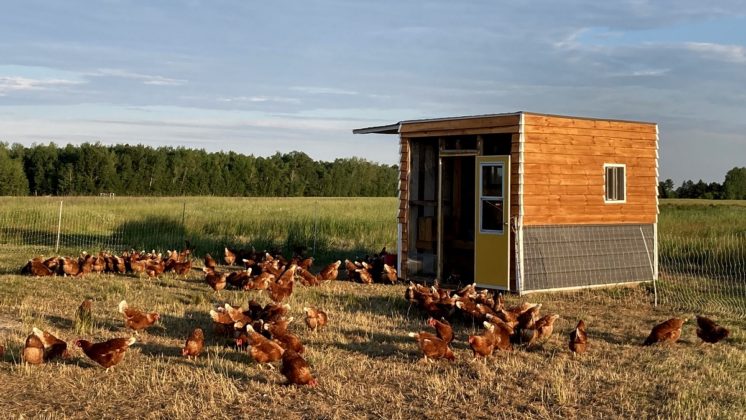
Locally Laid’s solar bunkhouse, the Nest, is an “immersive experience structure” that is “part living space, part chicken coop.”
Additionally, Lucie said many people in agriculture are third- or fourth-generation farmers, which creates a lot of added pressure if they can’t find the same success as their parents. Lucie described one instance at a farming conference she attended — which was more like “a thinly veiled marriage counseling / farmers-please-stop-killing-yourselves workshop” — in which she saw a man get “a little weepy.” The man was frustrated and confused as to why he couldn’t find the same success his parents did on the same farm years ago. Lucie explained that he — and other farmers today — simply “aren’t in the same playing field” as their parents, yet they’re holding themselves to the “same standard.” She said that’s not fair, “because there’s so much vertical integration that wasn’t in the formula at that time.”
“That’s when people stop and stare at me,” Lucie joked. It is by no stroke of luck that the Locally Laid Egg Company persevered where so many others are struggling; Lucie is passionate about educating other farmers so they might find the same success she did. In fact, in addition to her published book, Lucie also has a handbook for farmers on marketing. She explained that she made the handbook “because that group hasn’t had to market themselves and has kind of put themselves at the mercy of big brands that don’t always treat them well.”
Actually, this is exactly what she teaches in her handbook: getting farmers to understand that there’s a different way for them to look at what they’re doing, how to talk about their farm as a story and trying to get farmers to understand that what they do is interesting to the general public — much like her own posts about watering birds in soaring temperatures.
“There’s been decades of these folks — who know how to do everything from agronomy to animal husbandry to farm equipment maintenance — being called hazies and being made to feel stupid, when in fact they’re really flexible, smart people, so they’re kind of shy about what they do,” Lucie explained. Now that she is an empty-nester, she hopes to be able to devote more time to developing similar “happier” projects to help them share their stories.
This article was produced as part of a class project at the University of Minnesota Duluth in which students conducted interviews and wrote profiles of people and enterprises engaged in sustainable agriculture.
Recommended Links:
Leave a Comment
Only registered members can post a comment , Login / Register Here


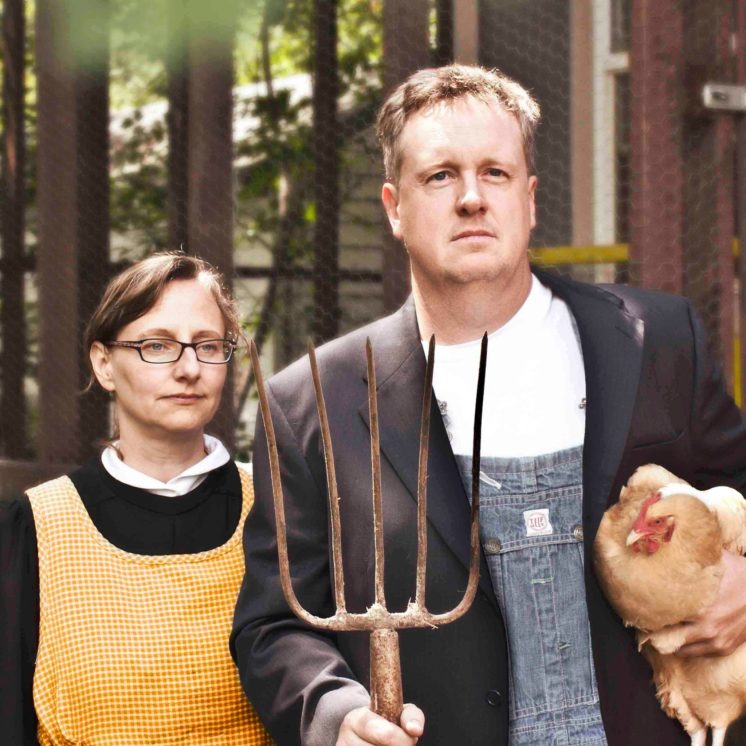


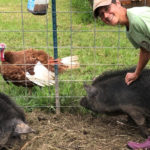
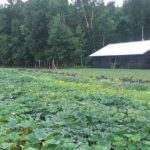








No Comments